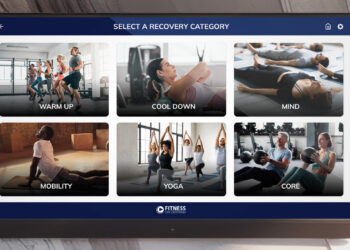Recent studies on gym closures during the pandemic reveal the impact on gym-goers’ mental and physical health, and how they feel about returning to gyms.
Emicity Research, a full-service market research and consultancy, recently revealed the results of its “California Exercise and Wellness Report,” showing the impact of gym closures on healthy, fitness-oriented Californians’ mental and physical health.
California Exercise and Wellness Report: The Impact of Gym Closures on Californians
In the study, Emicity found 86% of health and fitness-oriented Californians reported at least one negative health change since the closure of gyms. Additionally, of the 2,400 independent survey respondents, 54% reported negative impacts of the closure on their mental health and well-being.
“Substantial research covered the health consequences of COVID-19 among at-risk populations,” said Karl Schmidt, the president of Emicity Research. “However, little research examined the impact of COVID-19 on the health-maintaining behaviors of people who were fit and healthy at the beginning of the pandemic. In pursuit of this knowledge, we sought to examine how the COVID-19 pandemic has changed the exercise and fitness behaviors of people who regularly engaged in exercise prior to the pandemic, and since California is the fittest state in the country, we went straight to the source.”
While a lack of space and access to proper equipment is one issue addressed in the report, the survey also found the COVID-19-related shutdowns led to nearly a third of fitness-oriented Californians completely abandoning their exercise and fitness regimens altogether, suggesting the motivation to workout alone, even for fitness-oriented individuals, is a big obstacle.
“We are in the businesses of helping people live happy, healthy lives, so it saddened me greatly to see the results from the research study,” said Francesca Schuler, the CEO of In-Shape Health Clubs, in a statement. “We have been fighting for seven months to get our clubs reopened safely at a percentage that is fair for our members and sustainable for our businesses. To see how the club closures have negatively impacted the residents of our state is devestating and frustrating.”
Furthermore, the study results showed 100% of respondents exercised regularly pre-COVID-19, yet only 69% have exercised regularly during gym closures. However, despite the fear of gyms becoming redundant, nine out of 10 respondents plan to return to gyms when they reopen. Additionally, nearly half have no concerns about returning to gyms during the pandemic, as long as measures are put in place to ensure the safety of guests and workers.
The COVID Era Fitness Consumer: The Current Fitness Habits of the American Gymgoer
Another study, “The COVID Era Fitness Consumer,” conducted by IHRSA in collaboration with Kelton Global, a material company, reported on how Americans feel about the pandemic overall, and the effects it has had on their health, fitness, personal wellness outlooks and comfort levels returning to gyms.
Similar to the “California Exercise and Wellness Report,” this study also found gym-goers look forward to returning to gyms. In fact, the study showed 65% of Americans most miss being able to visit loved ones and secondly, 59% miss going to the gym.
With a lack of access to the gym, many who participated in the study expressed dissatisfaction with at-home fitness options and changes to their routine. Reasons stated include that new routines were less challenging, less consistent or simply just worse than their regular gym routine.
Among dissatisfaction is also the lack of ability to relieve stress through exercise, a pressing concern as mental health has already been severely impacted by the pandemic. In the study, 65% of gym-goers said exercise has been a way they’ve worked to manage or cope with stress over the last few months.
“The data confirms the essential role health clubs play in promoting and maintaining the well-being of consumers,” said Jay Ablondi, the executive vice president for global products for IHRSA, in a statement. “With 70% of members relying on their gyms to maintain their overall health, Americans are looking at getting back to, maintaining and even improving their exercise habits — and nothing but confidence in their gyms to be safe, comfortable and clean. Clearly there’s no replacement.”
Read the full research report from the “California Exercise and Wellness Report”
Read the full results from “The COVID Era Fitness Consumer”
Stay ahead in the fitness industry with exclusive updates!
Brittany is an editor at Peake Media. Reach her at brittany@peakemedia.com











